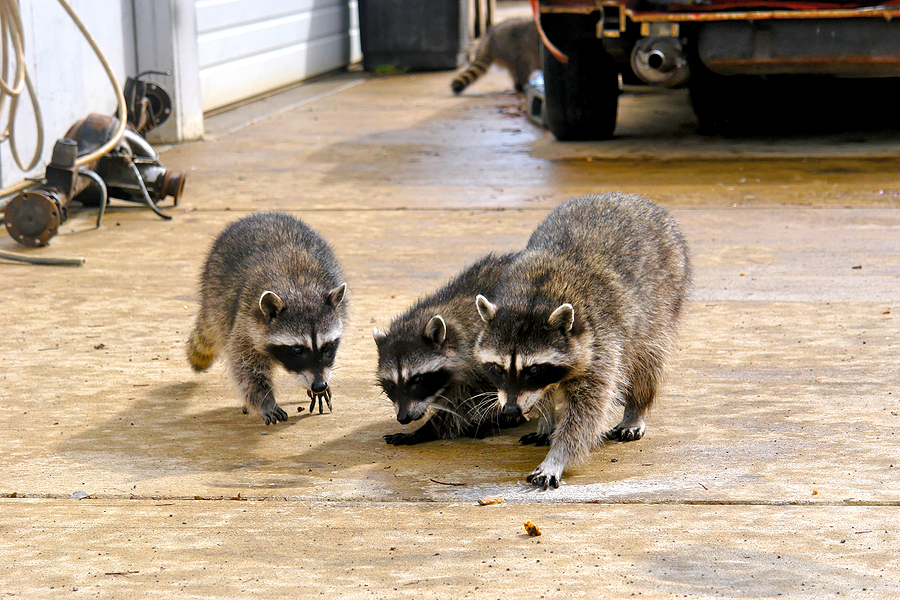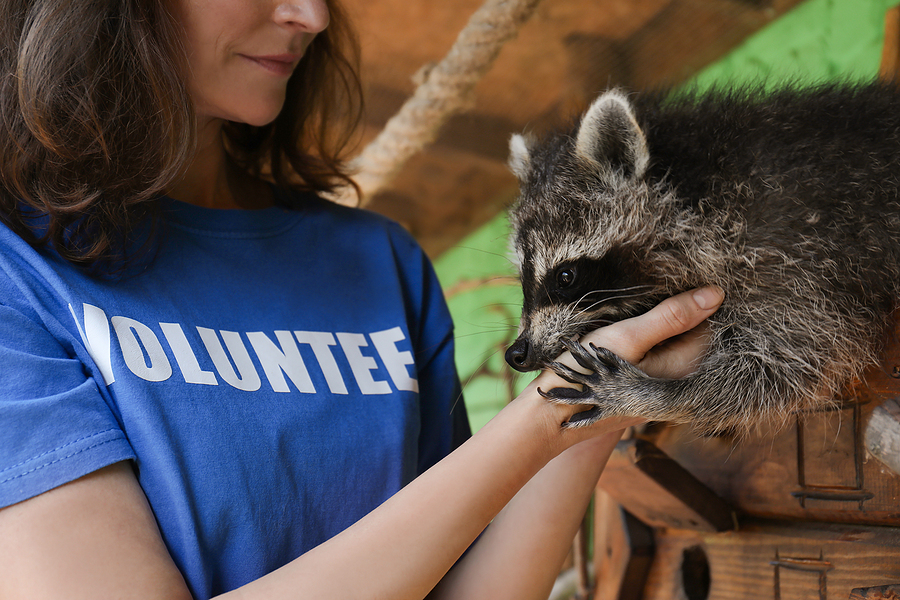Raccoons, those masked bandits of the night, can cause quite a headache for homeowners, especially in Indiana where the Common raccoon (Procyon lotor) is thriving. With their nimble hands and innate curiosity, these creatures can turn your peaceful abode into their own personal playground. From nesting in your attic to ravaging your garbage cans, raccoon infestations are a nuisance, and raccoon-related damage can be a costly affair.
However, worry not, in this comprehensive guide, we will introduce you to their habits, their preferred nesting spots, and the damage they can cause. We will also equip you with effective raccoon control strategies, ranging from homemade deterrents to professional raccoon removal services. Stay tuned as we embark on this journey to get rid of raccoons from your property.

The Common Raccoon (Procyon Lotor)
The Common raccoon, known for its black mask and ringed tail, is native to North America. These intelligent creatures are highly adaptable and have thrived in urban settings, including the state of Indiana. They are found all over the state, from the bustling cities to suburban areas and even rural parts. As omnivores, their diet consists of both plants and animals, making them versatile foragers. However, their natural curiosity often leads them to human settlements in search of food and shelter.
Preferred Nesting Spots
Raccoons are opportunistic nesters and can make themselves at home just about anywhere. Some common nesting spots include:
Attics: Raccoons prefer warm and dark areas, which makes your attic an ideal spot for nesting. They can enter through small openings or damaged areas on the roof.
Chimneys: Tall chimneys make for a cozy nesting spot for raccoons, especially during colder months.
Garbage Cans and Dumpsters: Raccoons are notorious for rummaging through garbage cans and dumpsters in search of food.
Under Decks and Sheds: These structures provide shelter and protection for raccoons, making them appealing nesting spots.
It’s important to regularly inspect these areas and seal off any potential entry points to prevent a raccoon infestation.
Damage Caused by Raccoon Infestations
Raccoons can cause a variety of damage when they make their way into your property. Some common types of damage caused by raccoon infestations include:
Structural Damage: Raccoons can tear through insulation, wiring, and other materials in your attic or walls, causing costly structural damage.
Contamination: Their feces and urine can contaminate the area they nest in, posing health hazards to you and your family.
Noise Disturbance: Raccoons are most active at night, and their movements can be loud and disruptive.
Garden Damage: Raccoons are omnivores and will eat fruits and vegetables from your garden.
Effective Raccoon Control Tips
Now that you know more about raccoons let’s discuss some effective raccoon control tips to keep them at bay:
Keep garbage cans securely covered. Use bungee cords or tight-fitting lids to prevent raccoons from accessing your garbage cans.
Use deterrents. Raccoons are sensitive to strong smells, so using items such as ammonia-soaked rags, predator urine, or cayenne pepper can deter them from entering your property.
Install motion-activated lights and sprinklers. These can startle and scare off raccoons when they enter your property.
Seek professional help. If the infestation is severe, it’s best to seek professional raccoon removal and control services. These professionals have the knowledge and equipment to safely remove raccoons from your property.
Conclusion
Raccoons may seem cute and cuddly, but their presence on your property can cause significant damage and inconvenience. By understanding their habits and implementing effective raccoon control tips, you can prevent infestations and protect your property. Remember, ‘Raccoons Be Gone!’ is possible with proper knowledge and proactive measures! So, stay vigilant, stay informed, and bid adieu to those pesky masked bandits!
If you have questions about raccoon control and removal, contact one of our Indianapolis wildlife control professionals for assistance. We provide effective raccoon removal and control services for residential and commercial properties throughout central Indiana. With the right approach, you can keep raccoons away from your home for good!
Related Posts:
How to Determine if You Have an Infestation of Raccoons in Your Home
The Dangers of Trying to Remove Raccoons Yourself
General Process of Raccoon Infestation Clean-Up and Repair

